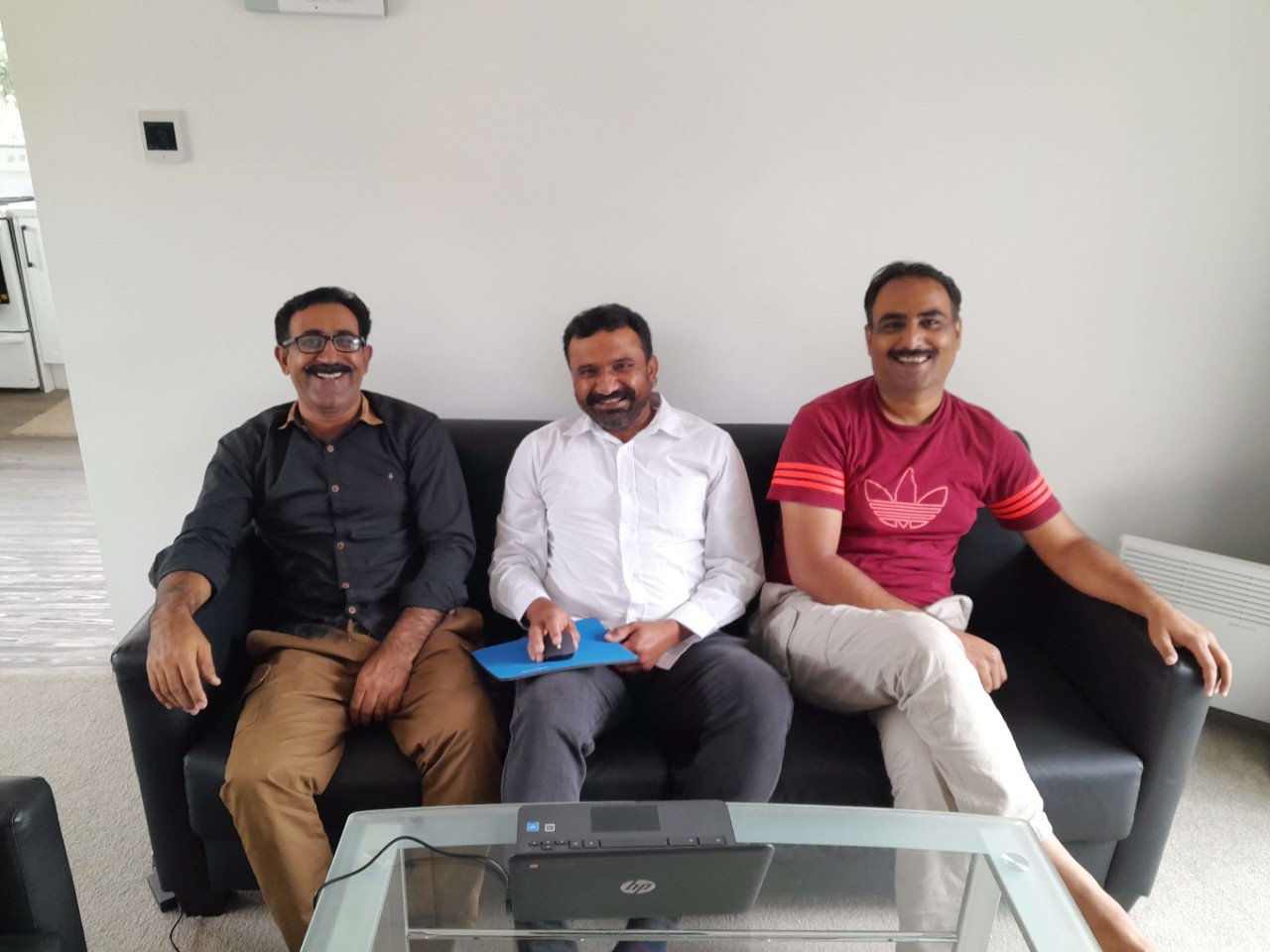
New Kiwis get connected online through Skinny Jump and New Zealand Red Cross.
Skinny Jump is a leading provider of digital equity solutions and is proud to share the inspiring journey of Zakir Ahmed, Waheed Ahmed, and Amjad Mahmood. Originally from Pakistan, they describe the transformative impact of gaining internet connectivity through the Awhi Matihiko project.
Zakir Ahmed, Waheed Ahmed, and Amjad Mahmood arrived in Masterton in September 2023. As new New Zealanders, they faced challenges of settling in a new country, far from their loved ones – learning a new language, new systems and adapting to a new culture.
New Zealand Red Cross provides community settlement for former refugees in eight locations across the country, supporting individuals and families to get to know and participate in their local community and connect to local agencies – including healthcare, education and employment.
"Working with Red Cross was good; they helped us a lot. We didn't feel alone and without a family here," says Zakir.
Access to the internet is important for good settlement and contributes to a sense of community. Awhi Matihiko is a collaboration between Skinny Jump (part of Spark Foundation), InternetNZ, Digital Inclusion Alliance Aotearoa and New Zealand Red Cross, and is designed to support former refugees to access the internet when they first arrive. Skinny Jump provides a free 12-month internet connection and InternetNZ funds a Chromebook for those who need them - all coordinated between Digital Inclusion Alliance Aotearoa and New Zealand Red Cross. In Masterton, the Red Cross team assisted Zakir, Amjad and Waheed who took up the opportunity with Awhi Matihiko and connected the modem in their home.
Waheed reflects on the experience of getting connected to the internet. "When I arrived here, I was worried about how we would contact our families in Pakistan. Getting connected through Skinny Jump allows us to stay in contact with them and tell them what our lives are like in New Zealand."
Amjad highlights the benefits of the internet connection. "It helps us learn English, and to prepare for the theory test for our driver licences."
Without programmes such as Awhi Matihiko, former refugees would face initial barriers of financial constraint, language difficulties and the lack of knowledge about local processes when trying to get connected online. Awhi Matihiko has made getting connected a smooth, and very helpful process.
Zakir reiterates that "without internet, many things would be difficult, including speaking to people here, and to our families. Having the internet is a plus point for us."
Paul Alsford, New Zealand Red Cross’ Pathways to Settlement Manager in Masterton shared insights into the impact of Awhi Matihiko for newly settled people. “The programme significantly aids individuals and families' confidence in their settlement by providing quick and reliable internet access. The ability to connect with family and friends, find information, and engage in local activities contributes to a smoother integration into the community.”
Paul acknowledged the limitations families face without internet access, noting that delays in getting connected hinder communication and the sharing of positive experiences. Quick access to the internet on arrival into their new community is vital for building confidence and helping them in their settlement process.
 From left to right: Amjad Mahmood, Zakir Ahmed, and Waheed Ahmed.
From left to right: Amjad Mahmood, Zakir Ahmed, and Waheed Ahmed.
For more information about New Zealand Red Cross’ refugee settlement, please see Supporting refugees | New Zealand Red Cross
If you would like to become a refugee support volunteer, please see Refugee support volunteer | New Zealand Red Cross

